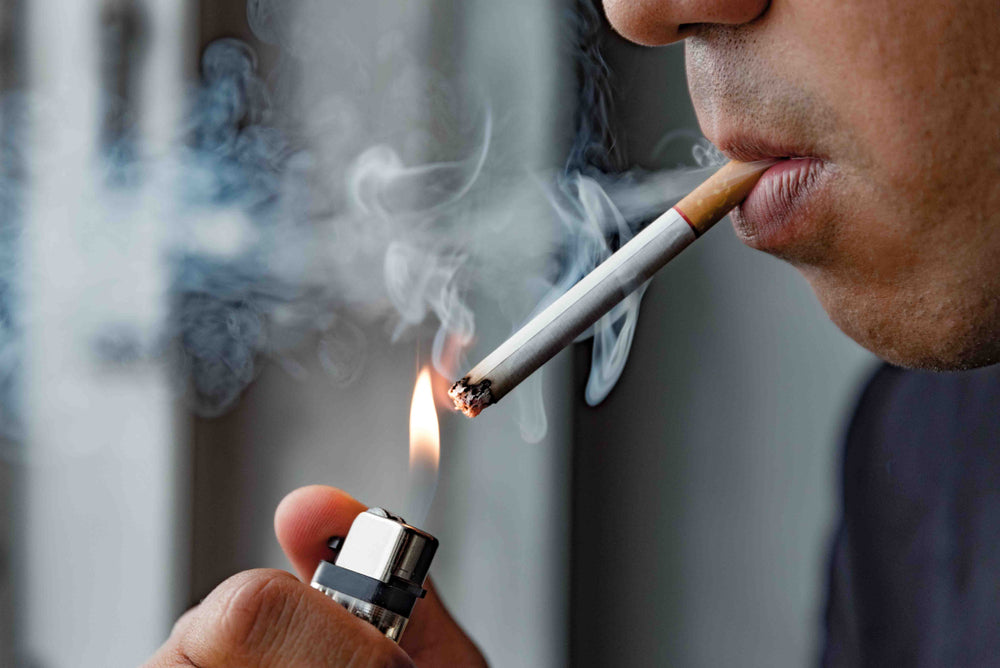There is no best-before date on cigarette packets, whether from the gas station or the supermarket. So how long can cigarettes be kept and can they expire? In this article, we'll explain how to keep your cigarettes fresh and how to store them properly. In addition, we'll give you some helpful tips on other tobacco products like snus and their shelf life.
Can tobacco go bad?
Manufacturers in Switzerland do not have to specify a best-before date for products that have a very long shelf life. The same applies to cigarettes, as tobacco cannot go bad if stored in a cool place. However, if tobacco is stored incorrectly, it can become dry and lose its flavor. To prevent premature drying out, the sticks of several packs are wrapped in foil and sold in a carton, which is also wrapped in foil.
The German Cigarette Association decided not to print a best-before date on cigarette packets, as they can still be enjoyed unopened decades after purchase. Dried-out tobacco, on the other hand, should no longer be smoked, as it poses an even greater health risk.
How can you tell how long cigarettes have a shelf life?
Cigarettes can be smoked up to two years after opening if stored properly. Gas stations and tobacco stores are regularly stocked with new products to prevent the sale of old cigarettes.
What about loose tobacco for cigarettes?
Loose tobacco is not packaged in foil like the sticks and therefore has a shorter shelf life. You can buy loose tobacco in plastic containers or metal tins that have been sealed airtight. The contents can be consumed for up to three months after opening the package. Packages that are still sealed have a shelf life of up to one year.
How can you recognize old tobacco?
Since tobacco is a natural product of the tobacco plant, it can dry out over time. Dry tobacco can be recognized by the fact that the paper turns yellow and the tobacco becomes crumbly. Although the cigarettes can still be smoked, the aroma and flavor changes.
Furthermore, old cigarettes smoke more strongly after being lit and thus the risk of nicotine poisoning also increases. Smoking old cigarettes is not recommended because they cause nausea and headaches. Filter cigarettes, which are industrially produced, cannot be refreshed and should therefore be thrown away.
That's how you recognize old cigarettes:
- Paper turns yellow and shows cracks
- They smell weird
- They smoke more after lighting
- The tobacco becomes crumbly
- The taste changes
How to store cigarettes properly?
Cigarettes should be stored in a cool and dark room. Bedrooms or storage rooms that are not heated are best suited here. Many smokers assume that cigarettes can be kept fresh longer in the refrigerator. However, this is a fallacy, as the tobacco will spoil over time. In the refrigerator, the humidity is higher and thus it can happen that the tobacco begins to mold.
Does price play a role in durability?
Expensive cigarettes do not have a longer shelf life than cheaper goods. The packaging of branded products is just as good as that of cheaper products and thus has no effect on shelf life.
Other products containing tobacco: Snus
Did you know that snus is up to 99% less harmful than cigarettes? This fact is mainly due to the simple reason that there is no combustion process in snus and therefore the most harmful elements of tobacco consumption, such as tar and carbon monoxide, cannot be formed. As far as the shelf life of snus is concerned, it is somewhat different from that of cigarettes: Snus has a higher moisture content and the shelf life differs depending on the format. Sometimes there are also countries that require a shelf life date on snus cans. Therefore, you can often find an expiration date on the packaging of snus. Since snus, unlike other tobacco products, contains salt and therefore does not mold, it can be stored in the refrigerator for optimal storage. Moist varieties can usually be kept in the refrigerator for up to 14 weeks, and dry varieties for up to 50 weeks. Generally, the wetter the snus variety, the less long it will keep. However, snus does not go bad like, for example, a milk, but simply loses moisture and thus also taste and effect over time.
Conclusion - Practically eternally durable and yet not eternally edible
The shelf life of cigarettes is not indicated on the packets, because they can not expire if stored properly. Stored in a dark and cool place, you can use cigarettes for up to two years. They should not be stored in the refrigerator, because tobacco begins to mold. You can recognize old cigarettes by their crumbly structure and yellow filter paper. They should no longer be smoked and thrown away.




 Dieses Produkt schädigt Ihre Gesundheit und macht stark abhängig.
Dieses Produkt schädigt Ihre Gesundheit und macht stark abhängig.